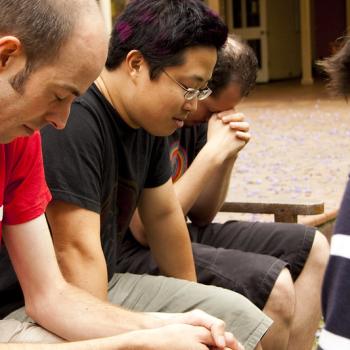Thorstein Veblen turns a less piquant eye on the capitalist situation in his turn-of-the-century book, The Theory of the Leisure Class. His term, "conspicuous consumption," invites the reader to contemplate the usefulness of greed, fashion, and leisure in the stimulation of the economy. In his theory, the upper classes buy and parade their economic superiority; this generates production, innovation, adaptation, and the employment of all those who create the goods to satisfy their lusts.
The lower classes also benefit. They ooh and aah and thrash about with envy, working ever harder to emulate the style and consumption of the upper classes. This makes them more focused and more motivated; it helps them to direct their aspirations and appetites to "higher" things, more refined tastes; it pushes them to abandon their supposed indolence and minimal lifestyles. Remove "conspicuous consumption"? What then?
Society will implode -- or so Ayn Rand argues in Atlas Shrugged (1957). Rand's posture of "ethical egoism" challenges the viability of an economic platform of compassion, generosity, sacrifice, and international altruism. The only fuel that can keep the carousel spinning is the fuel of rational self-interest. Once we try to apply selflessness in the economic order, we clog the wheels with entitlements and laziness. Everything comes to a screeching halt because everyone is waiting for someone else to do the work. In Rand's work, only as we each employ our gifts and talents to their utmost -- which will only happen if in fact we profit personally from that effort -- will the entire community benefit. Nothing could be worse, in Rand's world, than an economic "spirit of gift."
We are a woefully conflicted people -- enlightened about the evils of consumerism and greed and yet locked into the system. We call one another to reduce, recycle, and reuse, yet the reductions in sales and production that these cause may jeopardize the very lifestyle we treasure. We criticize ourselves, and the rest of the world chimes in. America's great gaping maw swallows the goods of the world, yet a thriving American economy is a boon to the global community as well.
Caritas in Veritate suggests there is a way out of this conundrum, but we're not going to figure it out on our own. "Without God man neither knows which way to go, nor even understands who he is... As we contemplate the vast amount of work to be done, we are sustained by our faith that God is present alongside those who come together in his name to work for justice.... man cannot bring about his own progress unaided, because by himself he cannot establish an authentic humanism. Only if we are aware of our calling, as individuals and as a community, to be part of God's family as his sons and daughters, will we be able to generate a new vision and muster new energy in the service of a truly integral humanism.... Openness to God makes us open towards our brothers and sisters and towards an understanding of life as a joyful task to be accomplished in a spirit of solidarity."
Human ingenuity and generic goodwill are not enough. Resolutions, legislation, rousing speeches, and justified anger are not enough. Conferences, charters, condemnations, and rousing movie documentaries are not enough. Helpful, well-intentioned, but ultimately inadequate. Deep down we recognize the good, but we cannot achieve it.
This is an offensive statement to many, who point to the acts of moral goodness done by those who do not believe in God. As Susan Jacoby wrote in On Faith, "Basic religious and legal strictures are merely a codification of what humans already know, through their own intellect and experience, is necessary to maintain a decent society for all." Jacoby suggests that what makes for a "decent society" is inherently obvious to those who just think about it. Why, then, is it always so darn difficult?
Private Vice, Public Benefit? That was Mandeville's pithy summary of the problem. Is it true? Or is there some hope for the kind of world the pope envisions? Perhaps the vision itself -- rooted in faith in God -- is the leaven that makes the whole loaf rise, even for those who reject the Baker.
Kathleen Mulhern is managing editor at Patheos and teaches courses on European history, the Church, Christian spirituality, and globalization.




